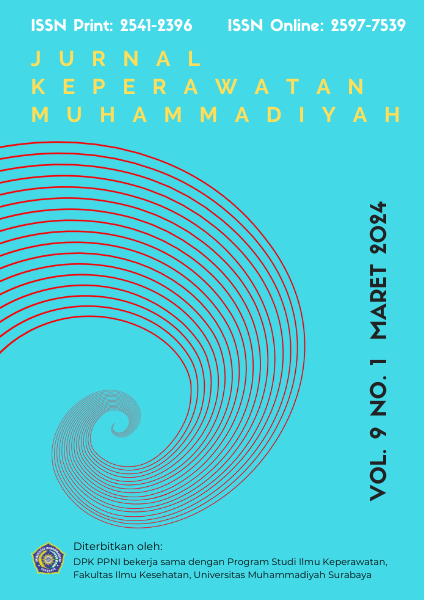Kepatuhan Ibu Hamil Trimester I Ditinjau dari Tingkat Pengetahuan dan Sikap dalam Konsumsi Asam Folat
DOI:
https://doi.org/10.30651/jkm.v9i1.20278Abstract
Objective: Pregnancy is a crucial stage in a woman's life, and nutritional intake before and during pregnancy plays an important role in maternal and fetal health. WHO recommends the daily use of folic acid and iron supplements to prevent anemia, congenital diseases, and infant mortality. Folic acid consumption from one month before pregnancy to during pregnancy can reduce the risk of neural tube defects (NTDs) by 50-70%. Therefore, it is important to conduct research on folic acid consumption. This study aims to determine the compliance of first trimester pregnant women in terms of the level of knowledge and attitude in folic acid consumption.
Methods: This study used an analytic research design with a cross-sectional study method. The sample in this study amounted to 70 people using accidental sampling method. Data collection was conducted for 3 months from May-July 2023 at Malawei Health Center, Manoi District, Sorong City. Univariate analysis was performed to determine the frequency distribution of the data, while bivariate analysis was performed to determine the relationship between variables using the chi-square test.
Results: The results showed a significant relationship between the level of knowledge of first trimester pregnant women and the level of compliance in consuming folic acid, which is reflected in the p-value of 0.036. However, this study did not find a significant relationship between the attitude of first trimester pregnant women and the level of compliance in consuming folic acid, as seen from the p-value of 0.125.
Conclusion: Pregnant women in the first trimester who have good knowledge are more likely to comply with folic acid consumption. This illustrates that more in-depth knowledge about folic acid can improve pregnant women's adherence to intake during pregnancy
Downloads
Published
Issue
Section
License
Copyright (c) 2023 Andhika Muhammad Fadhly Mulalinda, Hamdiah Ahmar , Filvanus Jabiy , Ernawati, Acih Suarsih

This work is licensed under a Creative Commons Attribution-ShareAlike 4.0 International License.
- Penulis tetap memegang hak atas karyanya dan memberikan hak publikasi pertama kepada jurnal ini yang secara simultan karya tersebut dilisensikan di bawah:Â Creative Commons Attribution-ShareAlike 4.0 International (CC BY-SA 4.0)













